Wilson Disease Association Medical Advisory Committee
The Medical Advisory Committee advises the leadership of the Association on medical and scientific aspects of Wilson’s disease and recommends medically related programs, policies and research which will help the WDA to implement its mission.
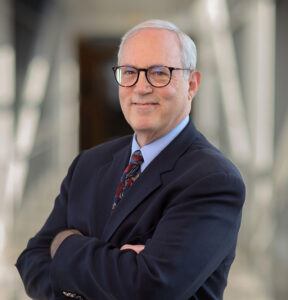 Michael L. Schilsky, MD Chair
Michael L. Schilsky, MD Chair
Yale Medical Center
New Haven, Connecticut
Dr. Schilsky trained with Dr. Irmin Sternlieb at Montefiore Medical Center, and developed his clinical and research interests in inherited metabolic disorders of the liver, which include Wilson disease and hemochromatosis. In 1999 Dr. Schilsky joined the faculty of Mount Sinai Medical Center, where he cared for patients with liver diseases and liver transplants as director of the Liver Medicine Clinic, and created a Center of Excellence for Wilson disease. He also created and directed the Metal Analysis Laboratory.
Dr. Schilsky joined Yale University Medical Center in 2007, as Professor of Medicine and Surgery. He is the Medical Director of Adult Liver Transplant at the Yale New Haven Transplantation Center and the Director of the WDA Center of Excellence at Yale. In 2017 Dr. Schilsky launched the first Wilson Disease Patient Registry site, at Yale. He is the author of numerous original manuscripts and reviews, including the most recent (2022) practice guidance on Wilson disease on behalf of the American Association for the Study of Liver Diseases.
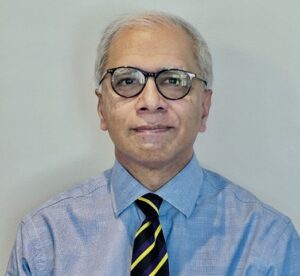 Aftab Ala, MD, PhD
Aftab Ala, MD, PhD
King’s College Hospital, London, UK
University of Surrey Guildford, UK
Dr. Ala leads the Adult Genetic Liver Disease Program at University of Surrey Guildford, which is recognized as a WDA Center of Excellence. He is Professor of Hepatology and Consultant Hepatologist at the Institute of Liver Studies at King’s College Hospital, London. As the recipient of The Sheila Sherlock Royal College of Physicians Fellowship, Dr. Ala worked at the Yale Center of Excellence for Wilson Disease with Dr. Michael Schilsky to build clinical and translational research collaborative links globally across the UK, Europe, Asia and the USA. His track record of research in Wilson disease is focused on diagnosis, monitoring, patient registries, developing and delivering novel therapies, and improving access to underserved populations.
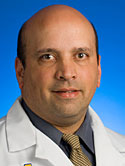
University of Michigan
Ann Arbor, Michigan
Dr. Askari’s clinical and research interests encompass viral hepatitis, medical genetics, hepatology, and liver transplantation. From these interests and his association with Dr. George Brewer, Dr. Askari became skilled in the study and treatment of Wilson disease. As Director of the Wilson Disease Center of Excellence at the University of Michigan, Dr. Askari has consulted with physicians and patients from all parts of the world, advising on the latest advances in Wilson disease diagnosis and treatment. He is Associate Professor of Medicine, author of a book on hepatitis C, and co-author of many manuscripts and journal articles.
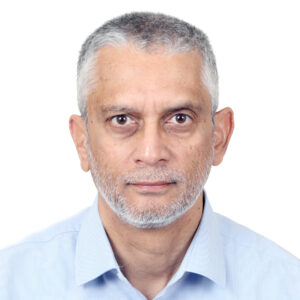 Ashish Bavdekar, MBBS, DNB, DCH
Ashish Bavdekar, MBBS, DNB, DCH
KEM Hospital, Pune, India
Dr. Bavdekar is a pediatric gastroenterologist and hepatologist, and is the Director of Pediatrics & Senior Consultant Gastroenterologist at KEM Hospital, Pune, India. He has been President of the Indian Academy of Pediatrics – Gastroenterology Chapter, contributing to many clinical practice guidelines including Wilson disease. He has conducted research on copper as it relates to Indian Childhood Cirrhosis. At KEM Hospital, he helped establish the Wilson Disease Center of Excellence and patient support group. Dr. Bavdekar has cared for Wilson disease patients for decades, and consults with doctors and patients from across India and other South Asian countries.
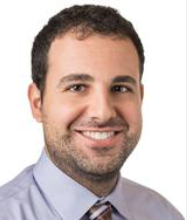
Northwestern University Feinberg School of Medicine
Chicago, Illinois
Dr. Bega is a movement disorders neurologist and Associate Professor of Neurology at the Northwestern University Feinberg School of Medicine. Dr. Bega is the director of the Northwestern Huntington’s disease clinic and Co-Director of the Wilson disease clinic, both of which are designated as Centers of Excellence. He has completed master’s level training in clinical investigations through the Northwestern University Clinical & Translational Science Institute, and is the principal investigator for several industry-sponsored clinical trials.
Jeff Bronstein, MD, PhD
University of California Los Angeles (UCLA)
Los Angeles, California
Dr. Bronstein is a movement disorder neurologist, Professor of Neurology, and Professor of Molecular Toxicology at the University of California Los Angeles since 2006/2007. His clinical interests include the medical and surgical management of Parkinson’s disease, Wilson disease and other movement disorders. Dr. Bronstein runs an active research program that includes clinical trials to develop new therapies. He also directs a basic science laboratory investigating the genetic and environmental causes of Parkinson’s disease using cell and zebrafish models as well as population-based studies.
 Amanda C. Cheung, MD
Amanda C. Cheung, MD
Northwestern University Feinberg School of Medicine
Chicago, Illinois
Dr. Cheung is an Assistant Professor of Medicine at Northwestern University Feinberg School of Medicine. She specializes in both general and transplant hepatology and cares for patients with a wide range of chronic liver diseases including Wilson disease, alcohol-associated liver disease, metabolic dysfunction associated steatotic liver disease, viral hepatitis, and autoimmune-related liver diseases. Dr. Cheung is the Co-Director the Wilson Disease Center of Excellence.
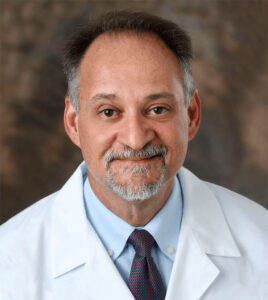 Regino Gonzalez-Peralta, MD
Regino Gonzalez-Peralta, MD
Advent Health
Orlando, Florida
Dr. Gonzalez-Peralta is a pediatric hepatologist at Advent Health. Previously he was Professor at the University of Florida, and Director of Pediatric Hepatology. His laboratory research defined the pathogenesis of liver-cell damage and the importance of viral heterogeneity in chronic hepatitis C. He has participated in pivotal investigator-initiated and industry-sponsored pediatric trials of chronic hepatitis B and C. He developed an interest in pediatric Wilson disease and has actively participated in WDA activities. He has held elected leadership positions within the American Association for the Study of Liver Diseases and the North American Society of Pediatric Gastroenterology, Hepatology and Nutrition.
 Sihoun Hahn, MD, PhD
Sihoun Hahn, MD, PhD
Children’s Hospital and Regional Medical Center
Seattle, Washington
Dr. Hahn became interested in inborn errors of metabolism during pediatric residency training, and then specifically copper-related diseases during medical genetics fellowship training. He led the genetics program at Ajou University in Suwon, Korea for several years, then was co-director of the biochemical genetics laboratory at the Mayo Clinic in Rochester MN, where he developed a clinical genetic test for Wilson disease. His research on Wilson disease includes mutation analysis, cloning and characterization of the promoter region of ATP7B gene to understand the regulation of gene expression, and most recently population screening for early detection. He has launched a newborn screening program for Wilson disease. He is now professor and head of the biochemical genetics program at the University of Washington Children’s hospital.
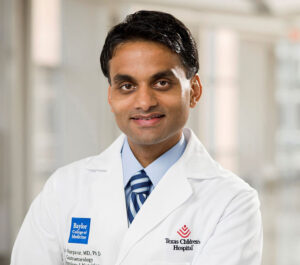 Sanjiv Harpavat MD, PhD
Sanjiv Harpavat MD, PhD
Texas Children’s Hospital
Houston, Texas
Dr. Harpavat is an Associate Professor at Baylor College of Medicine and Texas Children’s Hospital. He specializes in assessing and treating children with Wilson disease as well as other pediatric liver diseases such as biliary atresia, Alagille Syndrome, alpha-1 antitrypsin deficiency, progressive familial intrahepatic cholestasis, autoimmune hepatitis, and metabolic dysfunction-associated steatotic liver disease. He also has expertise in caring for children during and after liver transplantation.
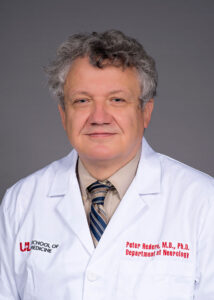 Peter Hedera, MD, PhD
Peter Hedera, MD, PhD
University of Louisville
Louisville, Kentucky
Dr. Hedera is a movement disorder neurologist and medical geneticist. His interest in Wilson disease started during his training at the University of Michigan Medical Center where he worked with Dr. Brewer treating and evaluating Wilson disease patients with neurologic symptoms. Prior to the University of Louisville, he was on faculty in the Department of Neurology at Vanderbilt University in Nashville, TN. He maintains a strong interest in the management of Wilson disease with neurologic manifestations, including therapy with neurotoxin and deep brain stimulation surgery for persistent neurologic symptoms. He is Editor-in-Chief of the Journal of Parkinsonism and Restless leg syndrome.
 Svetlana Lutsenko, PhD
Svetlana Lutsenko, PhD
Johns Hopkins University
Baltimore, Maryland
Dr. Lutsenko is Professor of Physiology at Johns Hopkins University since 2009. In 1994, during her postdoctoral studies, she contributed to the first characterization of the structure of the ATP7B gene in Wilson disease; from then on she continued to research the mechanisms of copper transport. Her laboratory has developed various assays to characterize the effects of ATP7B mutations in vitro and in cells. Her laboratory has developed cellular and animal models to understand the effects of copper accumulation on liver physiology, and the factors that trigger neurologic manifestations.
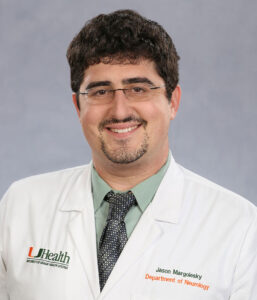 Jason Margolesky, MD, FAAN
Jason Margolesky, MD, FAAN
University of Miami/Jackson Health Systems
Miami, Florida
Dr. Margolesky is a movement disorder neurologist, and Associate Professor of Clinical Neurology, Director of the Neurology Residency Program at the University of Miami/Jackson Health Systems, and Vice Chair for Education in the Department of Neurology. He is dedicated to the management of functional neurologic disorders, directing a specialized multi-disciplinary clinic, and is the Co-Director for the Wilson Disease Center of Excellence at University of Miami/Jackson Health Systems.
 Valentina Medici, MD, FAASLD
Valentina Medici, MD, FAASLD
University of California Davis Medical Center
Sacramento, California
Dr. Medici is a Professor in the Division of Gastroenterology and Hepatology at the University of California Davis, where she has been practicing since 2006. She is the Vice Chair for Research in the Department of Internal Medicine, and Vice Chief for Academic Affairs in the Division of Gastroenterology and Hepatology at UC Davis. She is co-director of the Wilson Disease Center of Excellence. Dr. Medici has been NIH-funded to study Wilson disease in patients and in mouse models, with a focus on the epigenetic mechanisms of gene expression regulation. She conducts industry-funded clinical trials in Wilson disease, in particular working on gene therapy.
 Isabelle Mohr, MD
Isabelle Mohr, MD
University Hospital Heidelberg
Heidelberg, Germany
Dr. Mohr is a Senior Physician in the Department of Gastroenterology, Hepatology, Infectious Diseases, and Toxicology at the University Hospital Heidelberg, Heidelberg, Germany. She is the Director of the Wilson Disease Center of Excellence and is chairing several clinical and pharmacological studies. Heidelberg is the largest center in Germany with about 350 to 400 Wilson disease patients per year. Her research focuses on new diagnostic tools, and optimized monitoring of established therapies with relevant laboratory and clinical (bio)markers.
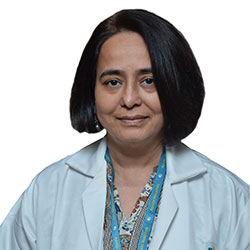 Aabha Nagral, MD
Aabha Nagral, MD
Jaslok Hospital
Mumbai, India
Dr. Nagral is currently Director of the Department of Gastroenterology at Jaslok Hospital in Mumbai, India. Dr. Nagral has over 30 years of experience in hepatology and transplant hepatology, and is the author of nine publications on Wilson disease. She is the Director of the Wilson Disease Center of Excellence and is the founding trustee of the NGO Children’s Liver Foundation and has organized numerous support group meetings for patients with Wilson disease. Additionally, Dr. Nagral is the chairperson of the women’s wing of the South Asian Association for the Study of Liver.
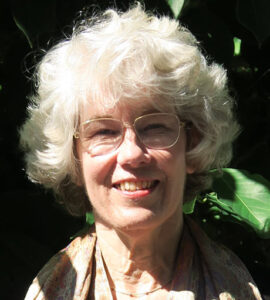 Eve A. Roberts, MD, FRCPC
Eve A. Roberts, MD, FRCPC
Halifax, Nova Scotia, Canada
Dr. Roberts joined the staff of the Hospital for Sick Children and its Research Institute in 1984, focusing on pediatric hepatology. She has been Professor of Pediatrics, Medicine and Pharmacology at the University of Toronto since 1998. She has been president of the Canadian Association for the Study of the Liver and chairman of the Board of the Canadian Liver Foundation. Her laboratory research has focused on drug hepatotoxicity and Wilson disease. She was the principal clinician-researcher on the team which identified the abnormal ATP7B gene in Wilson disease. In 2008 she received the Gold Medal from the Canadian Association for the Study of the Liver and the Canadian Liver Foundation.
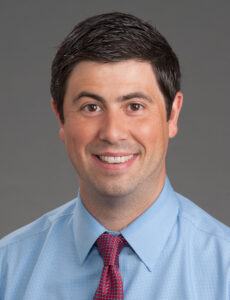 Sean R. Rudnick, MD
Sean R. Rudnick, MD
Wake Forest University School of Medicine
Wakeforest, North Carolina
Dr. Rudnick is Associate Professor of Gastroenterology at Wake Forest University School of Medicine. He has expertise in hepatology, specifically acute hepatic porphyrias and transplant hepatology. In his tenure with the Section on Gastroenterology and Hepatology he has served as Medical Director of Hepatology, Associate Program Director for the Gastroenterology Fellowship, and most recently Director of the Wilson Disease Center of Excellence.
Lin Zhang MD, PhD
University of California Davis Medical Center
Sacramento, California
Dr. Zhang is a Clinical Professor in the Department of Neurology at the University of California Davis Medical Center with over two decades of experience. He is the Co-Director of the Wilson Disease Center of Excellence and Director of the Center of Excellence for Movement Disorders and Neurorestoration, designated by the Parkinson’s Foundation. He has special clinical interest in tremor and dystonia, and unique expertise in deep brain stimulation.
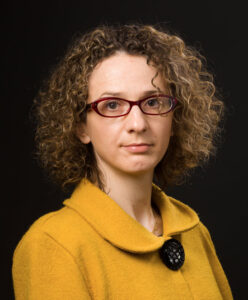
Paula Zimbrean, MD, FAPA, FAPM
Yale Medical Center
New Haven, Connecticut
Dr. Zimbrean is Professor of Psychiatry at Yale University, where she has been on faculty since 2005, working primarily at the interface between medical illness and psychiatric and addictive disorders. She is the Director of Transplant Psychiatry at Yale New Haven Hospital. Dr. Zimbrean has been collaborating with Dr. Schilsky at the Yale Wilson Disease Center of Excellence since 2010 and is the author or co-author of several publications focusing on the psychiatric aspects of Wilson disease.




